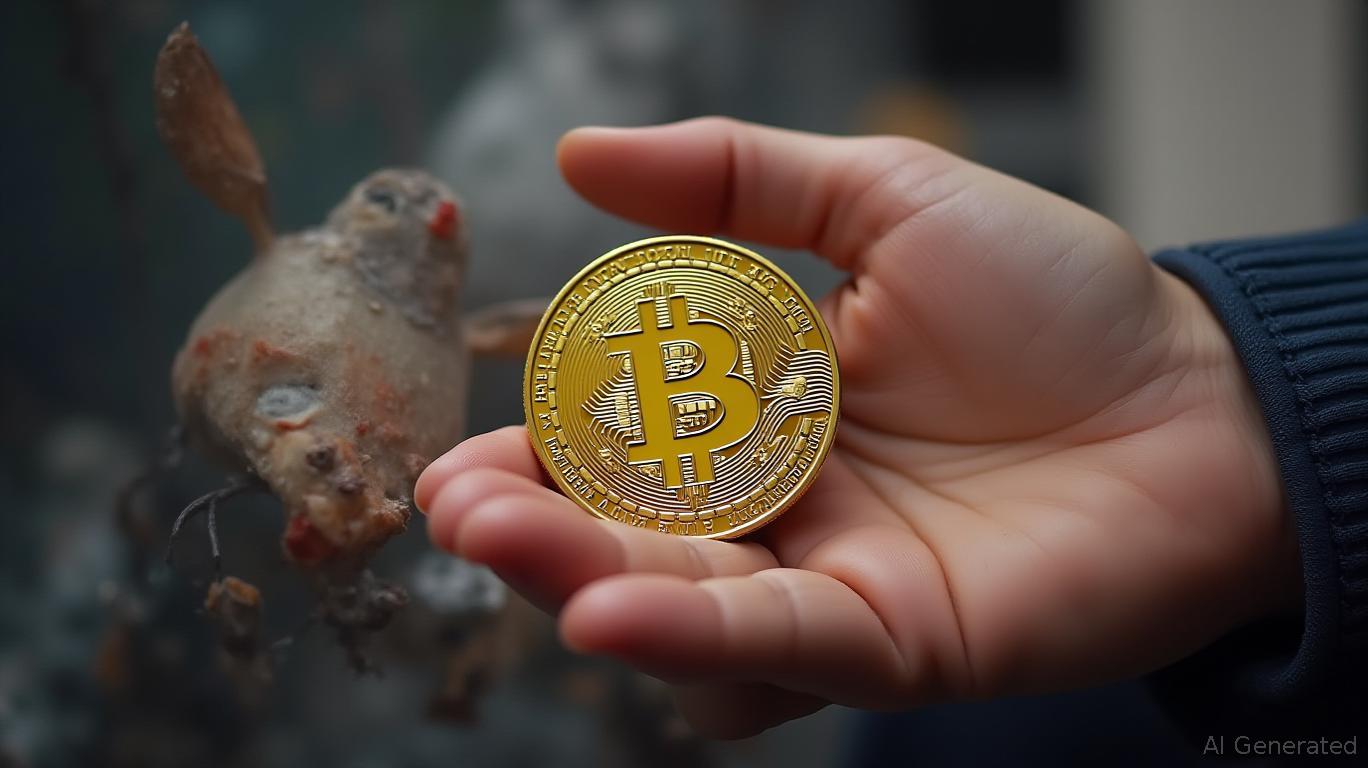U.S.-China Agreement Prevents Tariff Increase, Halts Restrictions on Rare Earths
- U.S.-China officials secured a framework to delay 100% tariffs and suspend China's rare earth export curbs, averting supply chain risks for U.S. tech/defense sectors. - The deal, negotiated in Malaysia, includes resuming Chinese soybean purchases and sets the stage for a potential Trump-Xi meeting at the APEC summit. - China will delay rare earth restrictions for a year while policy is reviewed, easing pressure on U.S. firms like Boeing and Tesla reliant on Chinese materials. - Analysts note the agreemen
According to Treasury Secretary Scott Bessent, the United States and China have come to a tentative framework agreement that would prevent a threatened 100% tariff hike on Chinese goods and help ease disputes over rare earth mineral export restrictions. The agreement, reached during senior-level discussions in Malaysia, could pave the way for a possible meeting between President Donald Trump and Chinese President Xi Jinping at the APEC summit in South Korea later this month. As part of the deal, China will temporarily halt its planned rare earth export curbs, offering crucial support to U.S. technology and defense sectors that rely on these resources, and will resume buying U.S. soybeans—a trade that had completely stopped in September, as reported by a
This framework comes after months of intensifying threats from both nations. Trump had stated he would implement 100% tariffs starting November 1 if China moved forward with its rare earth export limits, which the U.S. claims could disrupt global supply chains for semiconductors and high-tech manufacturing. In response, China has increased its oversight of rare earths—a sector where it holds significant processing power—and has suggested it may retaliate. The talks in Malaysia, led by Vice Premier He Lifeng and U.S. Trade Representative Jamieson Greer, tackled these matters along with issues related to agricultural trade and tariffs on semiconductors, according to a

The timing of this agreement is particularly significant. It comes just before Trump’s anticipated meeting with Xi, which Beijing has not yet officially confirmed, and helps avoid immediate economic fallout ahead of the November 10 deadline for the current trade ceasefire. Bessent noted that China will postpone its rare earth export restrictions for one year while the policy is reviewed, a decision that relieves pressure on American firms such as Boeing and Tesla that depend on Chinese materials for their products, as detailed in a
Meanwhile, Boeing Co. has named Landon Loomis, an executive fluent in Mandarin with diplomatic experience in China, to head its operations there. This appointment highlights Boeing’s efforts to secure a major agreement to sell as many as 500 aircraft to China, a deal that depends on reducing trade tensions. Loomis’s experience, which includes five years at the U.S. embassy in Beijing, equips him to manage the complex interplay between business interests and geopolitical concerns, as reported by a
Experts warn that while the framework is a constructive move, its long-term success hinges on the outcome of the Trump-Xi meeting and further discussions. China’s hesitation to confirm the leaders’ meeting and unresolved matters such as the detention of Hong Kong media figure Jimmy Lai point to ongoing difficulties. Nevertheless, the suspension of tariffs and export restrictions offers immediate relief, and global markets have responded with cautious optimism. The agreement also fits into wider efforts to secure supply chains, as the U.S. looks for alternatives to Chinese rare earths and China seeks to ease trade disputes, according to the
---
Disclaimer: The content of this article solely reflects the author's opinion and does not represent the platform in any capacity. This article is not intended to serve as a reference for making investment decisions.
You may also like
Bitcoin News Update: Prenetics Secures $48M Funding, Igniting Discussion on Medical Advancements and Bitcoin Market Fluctuations
- Prenetics raised $48M via equity offering to expand its IM8 supplement brand and Bitcoin treasury strategy, priced at $16.08 per unit. - The deal includes 2.99M shares and warrants with 50-100% premiums, aiming to fund IM8's $100M ARR growth and daily BTC purchases. - Market reaction was mixed, with shares down 15% premarket amid concerns over shareholder dilution and Bitcoin price volatility risks. - The offering, underwritten by Trump-backed Dominari Securities, highlights Prenetics' "health-and-wealth

Bitcoin News Update: BlockDAG Emerges as Ethereum’s Successor: $430M Presale Addresses Scalability’s $430M Challenge
- BlockDAG (BDAG) leads 2025 crypto with $430M presale, 27B tokens sold, and 4,500 dApp developers, leveraging hybrid DAG-PoW architecture to achieve 1,400 TPS. - Chainlink integrates S&P risk assessments for 2,400+ institutions while Render (RNDR) expands AI compute with H200 GPUs, projecting $6–$7 price targets by year-end. - Snorter Token (SNORT) and Bitcoin Hyper face speculation amid $5.7M and $13M presales, contrasting BlockDAG's utility-driven model with 20,000+ miners and 3.5M X1 app users. - Block

Canada Sets November Stablecoin Regulations to Prevent Capital Outflow and Safeguard National Sovereignty
- Canada’s November 4 budget will formalize stablecoin regulations as payment instruments, aligning with U.S. standards to curb capital flight to dollar-backed tokens. - Industry leaders warn delayed regulation risks Canadian bond demand, higher interest rates, and loss of monetary policy control due to U.S. stablecoin dominance. - Proposed rules include licensing, reserve requirements, and redemption terms to mitigate systemic risks, while Loon’s CAD-backed stablecoin aims to build domestic digital infras

Solana Updates Today: Blockchain Meets AI to Transform Financial Models
- Reliance Global Group adds Solana (SOL) to its digital asset treasury, expanding blockchain investments alongside Bitcoin and Ethereum. - Solana's 65,000 TPS hybrid architecture and instant finality position it as a scalable solution for enterprise blockchain adoption. - Kite AI integrates Coinbase's X402 standard for autonomous AI agent payments, enabling machine-to-machine transactions with enhanced security. - $33M funding led by PayPal Ventures accelerates Kite AI's development of AI-driven payment i
